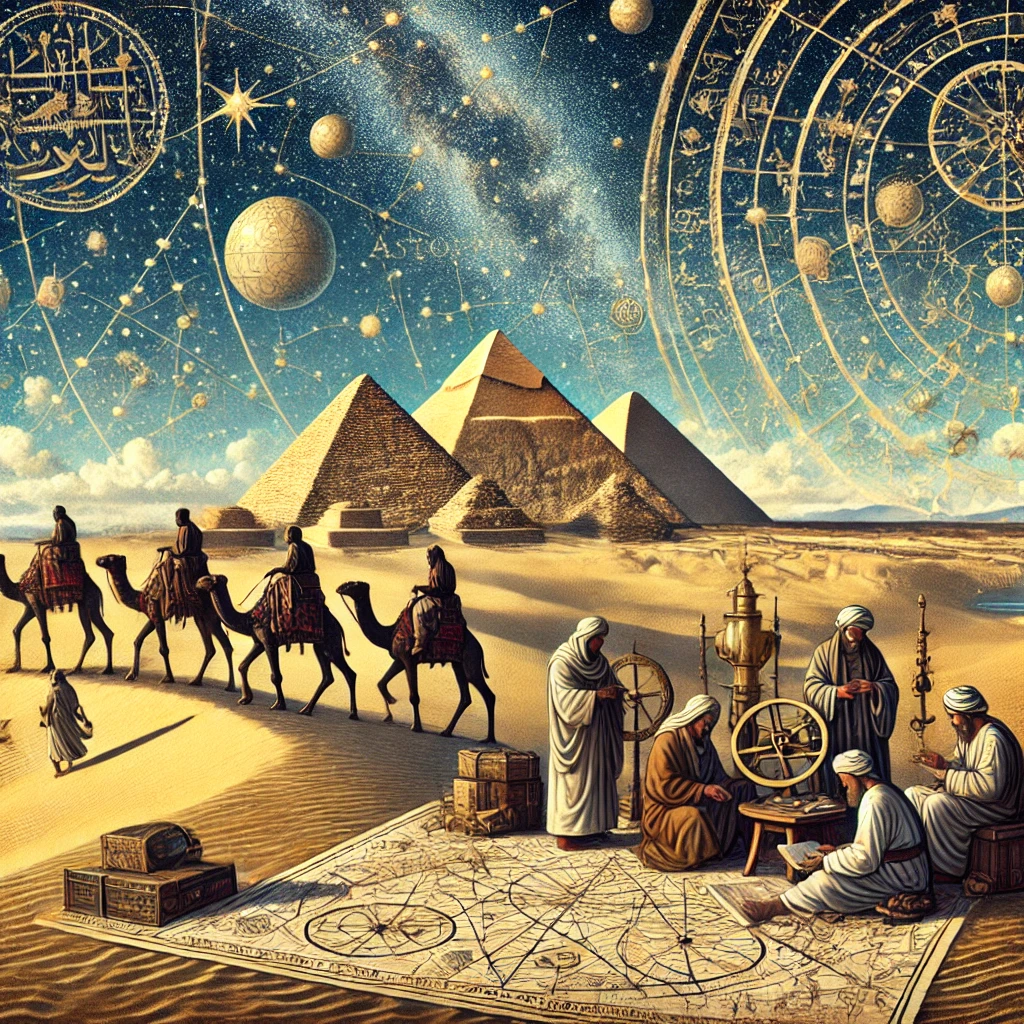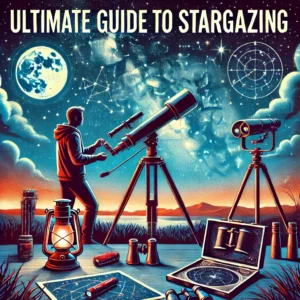The Sahara Desert, with its vast expanses and clear night skies, has long been a natural observatory for humanity. The history of astronomy in this region is rich with tales of ancient civilizations who studied the stars for navigation, timekeeping, and spiritual guidance. In this article, we delve into the fascinating history of astronomy in the Sahara Desert and how it has shaped our understanding of the cosmos.
Ancient Civilizations and Celestial Navigation
Long before modern technology, ancient civilizations in the Sahara Desert relied on the stars for navigation. The Berbers, Bedouins, and Tuaregs, among others, developed an intricate knowledge of the night sky, using constellations and star patterns to guide their journeys across the vast desert. These nomadic tribes could traverse the seemingly endless dunes with remarkable accuracy, all thanks to their celestial knowledge.
One of the most significant stars used for navigation was Polaris, also known as the North Star. By locating Polaris, travelers could determine their northward direction. Other key constellations, such as Orion and the Pleiades, served as seasonal markers, helping to signal the change of seasons and the best times for travel and trade.
Astronomy in Ancient Egypt
Egypt, located on the northeastern edge of the Sahara, is renowned for its contributions to astronomy. The ancient Egyptians meticulously observed the skies, and their knowledge is evident in their architectural wonders, such as the pyramids and temples aligned with celestial bodies.
The Egyptians used a lunar calendar based on the cycles of the moon, which was crucial for agricultural activities and religious ceremonies. The heliacal rising of the star Sirius, known as Sothis, was particularly important as it marked the start of the annual flooding of the Nile River, a vital event for agriculture.
The temples of Karnak and Abu Simbel are excellent examples of how astronomy was integrated into Egyptian architecture. These structures were designed to align with specific celestial events, such as the solstices and equinoxes, demonstrating the Egyptians’ advanced understanding of astronomy.
The Islamic Golden Age and Astronomical Advancements
During the Islamic Golden Age (8th to 14th centuries), the Sahara Desert region, particularly Morocco, became a hub for astronomical advancements. Scholars in cities like Fez and Marrakech made significant contributions to astronomy, building observatories and developing sophisticated instruments.
The astrolabe, an ancient instrument used for solving problems related to time and the position of the stars, was refined by Islamic astronomers. It became an essential tool for navigation and timekeeping, influencing both the Islamic world and Europe.
Moroccan scholars like Al-Battani and Al-Zarqali made groundbreaking discoveries and produced astronomical tables that were used for centuries. Their work laid the foundation for later astronomical studies and helped bridge the gap between ancient Greek astronomy and the Renaissance.
The Role of Astronomy in Saharan Culture
Astronomy was not only a scientific pursuit but also a cultural and spiritual one in the Sahara Desert. Many Saharan tribes incorporated star lore into their myths and legends, attributing divine significance to celestial events. The stars were often seen as ancestors or gods watching over the Earth.
Festivals and rituals were timed according to celestial events, and the knowledge of the night sky was passed down through generations. This deep connection to the cosmos remains an integral part of Saharan culture today.
Why Choose Our Stargazing Tours?
- Expert Guidance: Our tours are led by experienced astronomers who provide in-depth knowledge and personalized guidance, ensuring a memorable and educational experience
- State-of-the-Art Equipment: We use advanced telescopes and astronomical tools to offer clear and detailed views of the night sky
- Cultural Immersion: Our tours are enriched with cultural insights, including lectures on nomadic astronomy and local myths, blending science with heritage
- Eco-Friendly Practices: We are committed to sustainability, ensuring our tours respect and preserve the delicate desert ecosystems.
Join us on a journey through time and space as we explore the rich history of astronomy in the Sahara Desert. Experience the magic of the night sky and gain a deeper understanding of how ancient civilizations viewed the cosmos. Book your tour today and embark on an unforgettable adventure under the stars.





